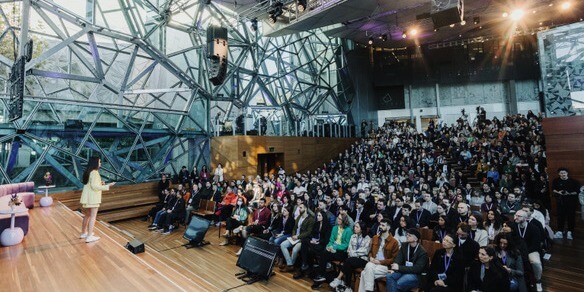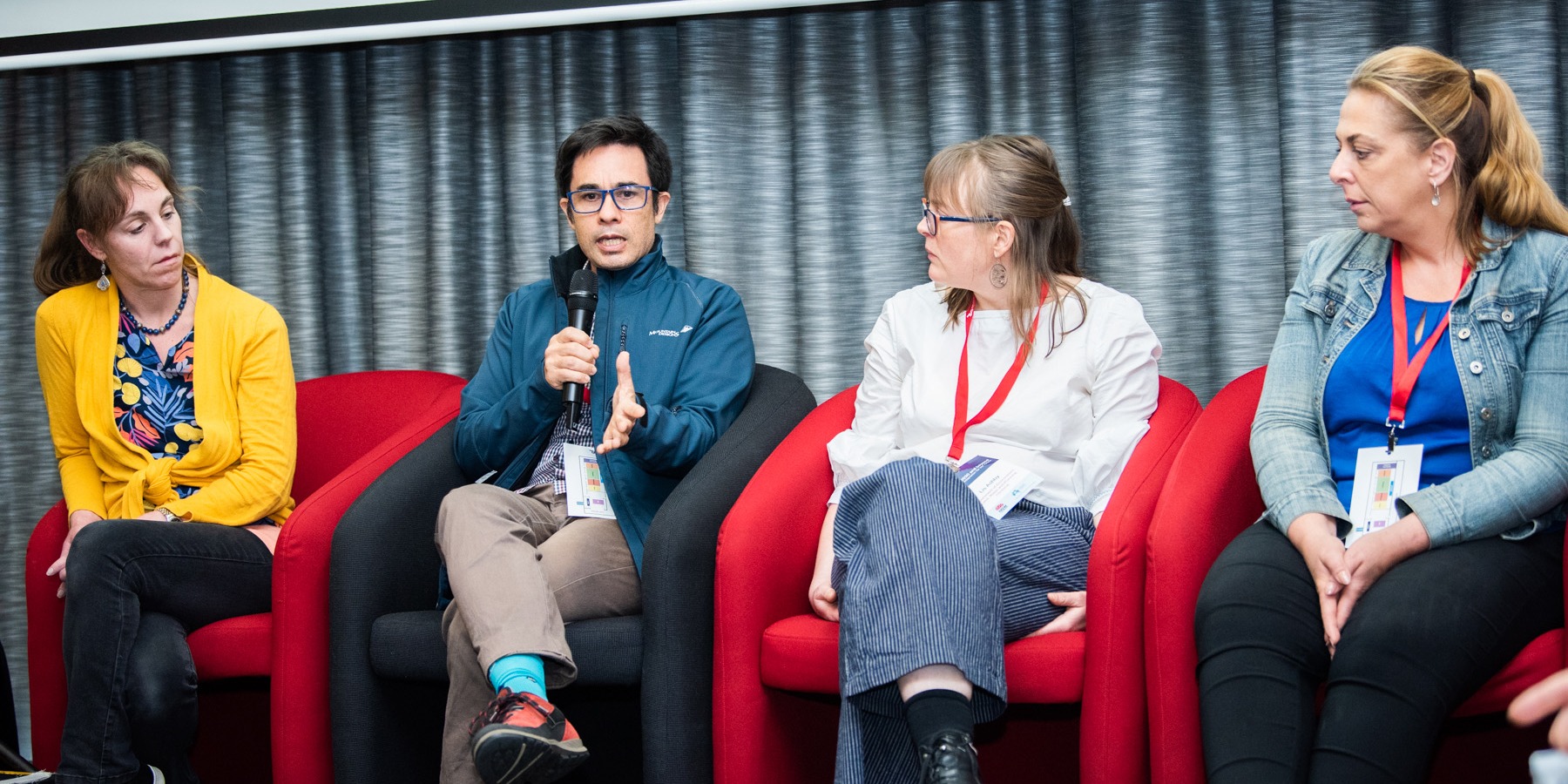Scenes of festival goers sliding through mud in 2022 was a clear call to action for Australia’s events industry.
Events organisers have always allowed for bad weather. But planning for extreme weather is a different and daunting challenge.
Marky Rochford, Director, Frank Wild
‘Splendour in the Mud’ may have dominated social media feeds for a week, but its implications have kept the event sector up at night for many months since.
“Trekking through knee-deep mud at a music festival might be fun if you’re with your mates. But working in those conditions for days or even weeks at a time is another story,” says Marky Rochford.
“How long will people want to work – let alone volunteer – at events if conditions are not only extremely uncomfortable but a danger to their health?”
Business as unusual
The events sector has a sizeable carbon footprint. Large gatherings of people generate emissions from electricity, travel, food and waste.
To reduce this impact, many operators are looking at their events through a sustainability lens. A growing cohort of event companies are choosing venues based on their green credentials and proximity to public transport, procuring local food and minimising waste, and certifying their carbon neutrality with the Australian Government’s Climate Active program.
Frank Wild, for instance, assesses carbon emissions for events and is a registered consultant for Climate Active. In 2021, Frank Wild achieved B Corporation certification, joining 7,000-plus businesses around the world that meet high standards of social and environmental performance, accountability and transparency.
But the succession of extreme weather events has laid out the challenge to the events sector in black and white: not only does it have a responsibility to reduce its considerable carbon footprint to help the world tackle climate change; it must also take steps to adapt to an unpredictable climate.
“In the last few years, we’ve seen the Australian Open affected by bushfire smoke, some of the country’s largest music festivals postponed, relocated or cancelled due to fire risk or floods, and other events organisers adjust their dates or locations,” Marky says.
“Some businesses have had no choice but to call it a day. Others have beefed up their insurance to buoy them through the next potential disaster.”
Counting the costs
Event planners aim for predictability, but they prepare for the unexpected.
Road closures or flight cancellations due to extreme weather, fuel price increases and material delays due to supply chain disruptions, temperature extremes and power outages all come at a cost.
Insurance premiums, always a huge outlay for the events industry, have skyrocketed as insurers try to recoup some of the $6 billion in claims from 2022 floods which, according to the Insurance Council of Australia, was the “costliest extreme weather event in our history”.
“We are also seeing insurers mitigate potential risks by separating ‘adverse weather’ as a very expensive optional extra in their cancellation policies,” Marky notes.
Regulation and reporting are also ramping up. New mandatory accounting requirements for Australia’s largest and unlisted companies – those with more than 500 employees, $500 million-plus in revenue and more than $1 billion in assets – are now under significant scrutiny and must soon report on a range of ‘Scope 3’ emissions. This requirement, which comes into force on 1 January 2024, means they must track and report on the carbon emitted on everything from employee commuting and business travel to products procured and disposed of at the end of their life.
Chairman of the Australian Securities and Investments Commission, Joe Longo, has said this will be the “biggest change to corporate reporting in a generation”.
“We already have some clients who request emissions reporting or have new ESG targets for their businesses that require data on their impacts,” Marky adds. “Reporting requires careful and accurate assessment processes and needs to be considered as part of efforts to reduce an event’s impact.”
For the events sector, the impacts of climate change can incur colossal amounts of additional time. Time to assess and navigate new challenges. Time to negotiate and budget for the new costs incurred. Time to adjust to a new playing field.
Marky Rochford, Director, Frank Wild
Staffing the storm
The 2023 Intergenerational Report has warned that the impacts of a warming climate will affect work conditions, and place people in some jobs at greater risks of heat stress.
“In the absence of changes to the way people now work, this will affect hours worked and the ability of employers to recruit workers,” the report cautions.
Marky sees resourcing as one of the events industry’s most pressing issues.
“Many large-scale events have shelter for patrons, but there are armies of people working outside, running entry gates, security, catering, cleaning, parking and more,”
“How does the events industry attract and retain management talent or general labour for events when there are many roles that require them to work in extreme conditions?”
Many of these “secondary impacts” aren’t yet in the collective consciousness of Australia’s event industry or, crucially, its clients. The solution? “We must have difficult conversations so we can engage with the adaptation challenge head on.”
High impact events in a low impact way
In 2023, AdaptNSW have taken a very conscious approach to the environmental impact of the AdaptNSW Forum.
While the Forum is guaranteed to deliver content that continues to showcase NSW as a world leader in adaptation, we wanted to make sure our event can also showcase how events can limit their impact to our planet
The 2023 Forum will aim for zero waste to landfill, take all opportunities for event impact reduction and ensure all sustainability claims are 100% verified where possible. Register, and join us to see how we're putting this into action.
Join two days of discovery, collaboration and innovation from 4-5 December at the 2023 AdaptNSW Forum. For more content, check out the 2022 AdaptNSW Forum session summaries.


